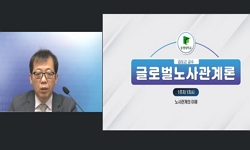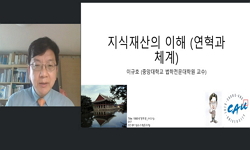In recent years, the rapid advances in technology and the evolution in social and economic information have led to the increasing importance of trade secrets in Korea. Advanced technology in the field of information and environmentally sound technolog...
http://chineseinput.net/에서 pinyin(병음)방식으로 중국어를 변환할 수 있습니다.
변환된 중국어를 복사하여 사용하시면 됩니다.
- 中文 을 입력하시려면 zhongwen을 입력하시고 space를누르시면됩니다.
- 北京 을 입력하시려면 beijing을 입력하시고 space를 누르시면 됩니다.
https://www.riss.kr/link?id=A105445777
- 저자
- 발행기관
- 학술지명
- 권호사항
-
발행연도
2018
-
작성언어
-
- 주제어
-
KDC
360
-
등재정보
KCI등재
-
자료형태
학술저널
-
수록면
27-49(23쪽)
- DOI식별코드
- 제공처
-
0
상세조회 -
0
다운로드
부가정보
다국어 초록 (Multilingual Abstract)
industrial espionage through the enticement of present and/or former employees of a company by a competitor, the issue of protecting trade secrets has gained a great deal of attention. Thus, an efficient legal system became a necessity in order to prevent acts of unfair competition such as the misappropriation of trade secrets and to maintain fair competition in the market. In the presence of large scale global labour mobility, the protection of trade secrets and
the law on post-contractual non-compete clauses (restrictive covenants) in an employment context have presented a major problem. The paper starts with the protection of trade secrets in an employment context, then moves to restrictive covenants, post-contractual competition issues and finally problems of procedure and enforcement.
In recent years, the rapid advances in technology and the evolution in social and economic information have led to the increasing importance of trade secrets in Korea. Advanced technology in the field of information and environmentally sound technology has also increased the possibility of accidentally or intentionally acquiring information, and has been accompanied by an increase in sharp practice related to trade secrets. With the increase in
industrial espionage through the enticement of present and/or former employees of a company by a competitor, the issue of protecting trade secrets has gained a great deal of attention. Thus, an efficient legal system became a necessity in order to prevent acts of unfair competition such as the misappropriation of trade secrets and to maintain fair competition in the market. In the presence of large scale global labour mobility, the protection of trade secrets and
the law on post-contractual non-compete clauses (restrictive covenants) in an employment context have presented a major problem. The paper starts with the protection of trade secrets in an employment context, then moves to restrictive covenants, post-contractual competition issues and finally problems of procedure and enforcement.
동일학술지(권/호) 다른 논문
-
- 원광대학교 법학연구소
- 류화진(Ryu Hwa jin)
- 2018
- KCI등재
-
- 원광대학교 법학연구소
- 범 건(Fan Jian)(范 健)
- 2018
- KCI등재
-
- 원광대학교 법학연구소
- 호동덕(Hou Dongde)(侯东
- 2018
- KCI등재
-
- 원광대학교 법학연구소
- 高橋英治(Eiji Takahashi)
- 2018
- KCI등재





 eArticle
eArticle 스콜라
스콜라





